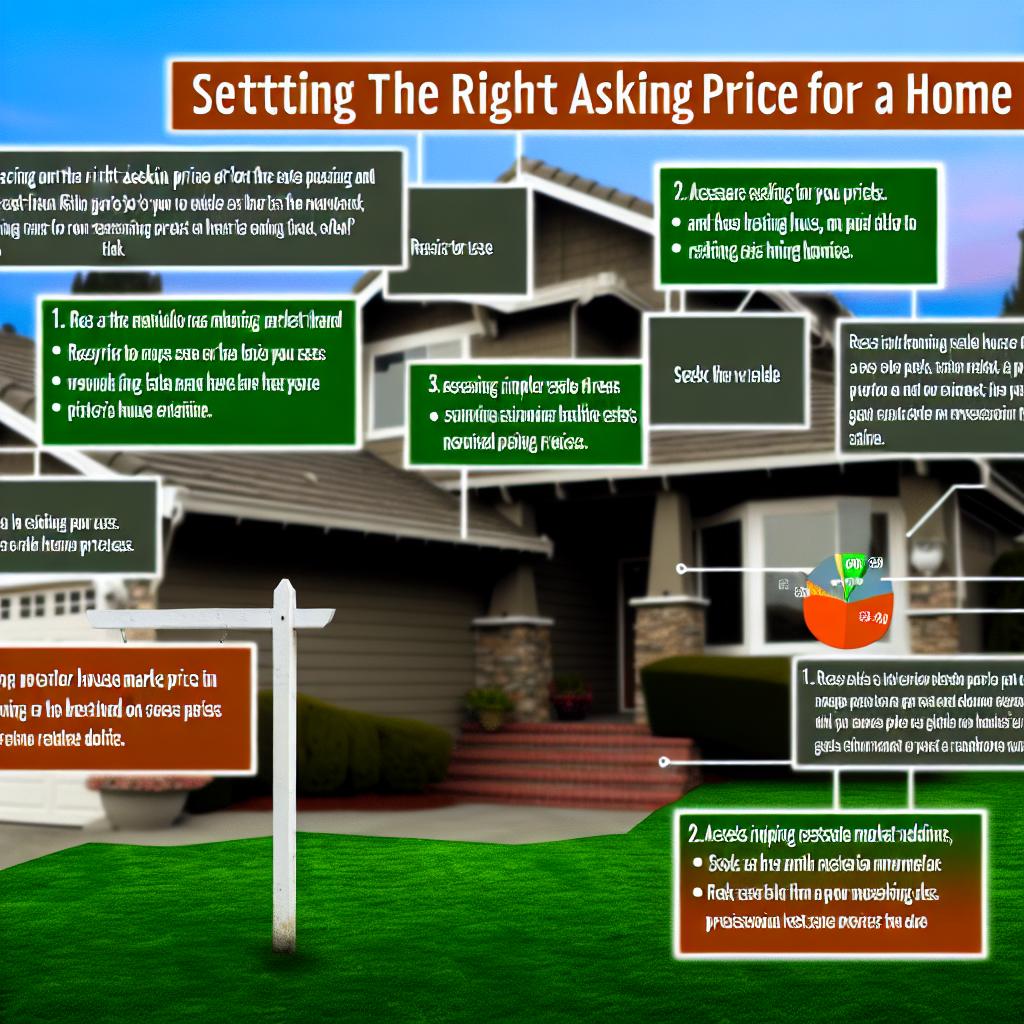
When it comes to selling a property, one of the most pivotal aspects to consider is the listing price. Pricing your home correctly is not just a matter of choosing a number that seems appealing; it hinges on a comprehensive understanding of the current real estate market. This isn’t merely about knowing the prices of homes around you; it’s about delving deeper into the nuances that influence those values.
To set the right asking price, one must initially immerse themselves in local market research. The goal here is to assess trends that have unfolded over several months or even years. Understanding the trajectory of housing demand, observing the ebb and flow of property values, and deciphering market fluctuations are integral steps. A sound strategy involves examining recently sold properties to gauge what buyers are willing to pay. This is not simply about copying prices, but about discerning the rationale behind them. For those unacquainted with market analyses, the guidance of a real estate agent can be invaluable. These professionals possess a nuanced understanding of the market, equipped with access to data that might elude an average homeowner. A real estate agent can provide a comprehensive comparative market analysis (CMA), which aids in arriving at an accurate price point grounded in market realities rather than mere speculation.
In the contemporary digital landscape, numerous online tools are at homeowners’ disposal, offering preliminary estimates of property values. These automated valuation models (AVMs) leverage data from extensive databases, including property records and recent transaction details, to churn out a valuation. While these tools provide a useful jumping-off point, they should be approached with a discerning eye. An AVM might offer a swift estimate, but it lacks the personal insight and contextual understanding a human professional can provide. Therefore, while an online tool may suggest a potential price range, it is prudent to augment this information with a formal appraisal or recommendations from a seasoned real estate agent.
Another layer to consider in determining a property’s asking price revolves around the home’s condition and unique attributes. A thorough assessment of the home’s current state is crucial. Properties that have recently undergone renovations, possess modern amenities, or feature eco-friendly installations typically command higher prices. Furthermore, the size of the home — both in terms of square footage and lot dimensions — alongside the quality of the layout, significantly influences buyer interest. Unique features like panoramic views, high-end appliances, or historical significance can add intangible value, attracting potential buyers willing to pay a premium.
Timing plays a critical role in the sale of a property. Real estate markets are often susceptible to seasonal fluctuations, which can significantly impact the speed and profitability of a sale. Data suggests that spring and early summer are peak periods in many regions, characterized by a surge in buyer activity. Homes listed during these seasons might sell faster and at higher prices due to the increased demand. Understanding these cyclical patterns is essential for setting a price that strikes a balance between appealing to potential buyers and optimizing returns for the seller.
In activities related to the sale of real estate, few practices hold as much credibility as an official home appraisal. Conducted by a licensed professional, these assessments provide an unbiased valuation of the property. By evaluating factors such as recent market transactions, the inherent condition of the home, and its locational attributes, appraisers furnish a fair market value. This independent verification is not only crucial in pricing decisions but also offers potential buyers a sense of confidence in the property’s market position.
In essence, pricing a home requires a strategic blend of market analysis, timing acumen, and professional insights. For those unfamiliar with the myriad components involved, engaging with experienced real estate professionals can pave the way for a successful sale. They can offer guidance that extends beyond pricing strategies to encompass broader market considerations and legislative compliance.
For individuals seeking additional resources or guidance, platforms such as Realtor.com provide valuable information. Alternatively, a direct consultation with a trusted real estate professional can offer tailored advice and deeper insights into the intricacies of your local market. The process of setting an asking price is nuanced, demanding both analytical prowess and an understanding of subjective elements that influence buyer decisions, ensuring that sellers not only achieve but potentially exceed their financial objectives.
Comments are currently closed.